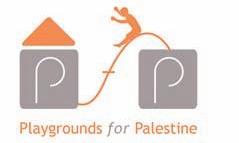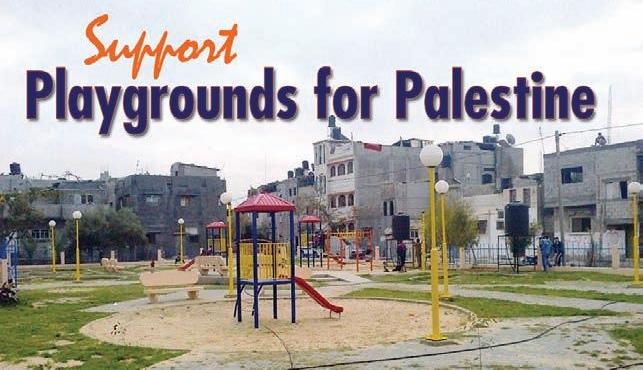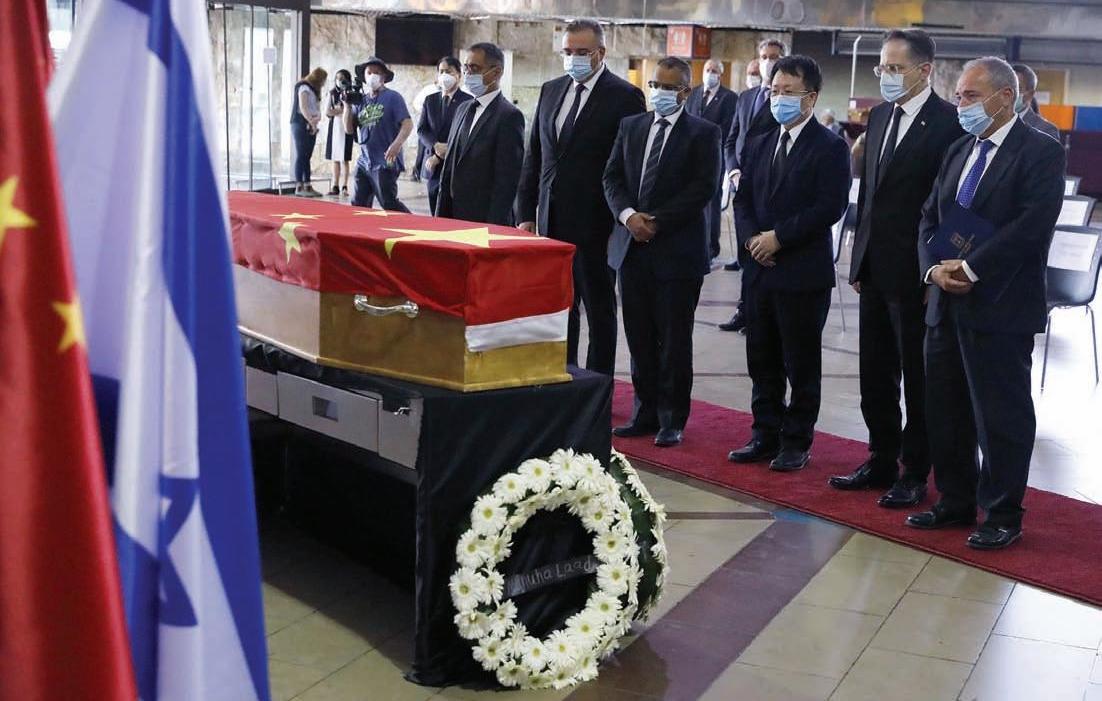
5 minute read
Playgrounds for Palestine
refused to accept the so-called tax-clearance funds from Israel. Abbas said the PA was also halting security cooperation because of Israeli plans to annex some, or all, of its West Bank settlements and the Jordan Valley.
For more than two decades, the Israeli government has deducted monies beyond its 3 percent service fee for hospital and electricity payments. The Israeli collection of funds on behalf of the Palestinian Authority came about as part of the 1994 Protocol on Economic Relations. Such funds typically include taxes on imports to the PA-controlled areas and income tax for Palestinians working in Israel. Since 1997, Israel has withheld these payments, as “punishment” and pressure, 13 times.
In the West Bank and Gaza, revenues have also been hard hit as commercial activities decreased with the decline of salaries and the coronavirus lockdown. T h e PA’s d o m e s t i c income has been reduced by 50 percent, according to the Finance Ministry spokesperson, Abdulrahman Byatneh.
Even prior to the current cut, over the last four years, Gaza-based PA employees have been hit hard, and only received 50 to 70 percent of their wages, which barely covered their needs.
Although Israel rel e a s e d 8 0 0 m i l l i o n shekels ($203 million) to t h e PA t o d e a l w i t h COVID-19 in May, the World Bank says if the COVID-19 outbreak is not controlled soon, its impact on economic activity and livelihoods is going to be severe. “Private sector representatives have also announced plans to cut pay by 50 percent. The largest impact would be through a decision to stop the entrance of more than 140,000 Palestinian workers to Israel, as those workers and their families account for a third of private consumption given their higher take-home pay,” according to an April 2020 World Bank report.
“Someone must feel the pain,” says Abu Dyaa, warning, “if this is going to continue, one can never control a hungry nation.” Yet, (Advertisement) as a PA employee he said he understands that his government is protesting Israel’s intention to annex more territory in the West Bank. “Think about the dilemma we live in—since 2006, we go through hassles every single day—and it is all beyond our control,” he adds.
Meanwhile, Fawzia Al Tahan said her late husband had a pension that she still relies on to prepare their oldest daughter for getting married in September. Now she realizes that wedding is out of question— and no one knows how long she will have to wait before the financial issue is resolved. But she knows the situation is
political and beyond her
Playgrounds for Palestine is a project to build playgrounds for our children. It is a minimal recognition of their right to childhood and creative expression. It is an act of love. Playgrounds for Palestine (PfP) is a registered 501(c)3 non-profit organization, established in 2001. We’re an all-volunteer organization (no paid staff) that raises money throughout the year to construct playgrounds and fund programs for children in Palestine. Selling Organic, Fair Trade Palestinian olive oil is PfP’s principle source of fundraising. is year, PfP launched AIDA, a private label olive oil from Palestinian farmers. Please come by and taste it at our table. We hope you’ll love it and make it a staple in your pantry.

For more information or to make a donation visit: https://playgroundsforpalestine.org • P.O. Box 559 • Yardley, PA 19067
control.
Palestinian President Mahmoud Abbas said the PA will avoid any more mutual understandings and end coordination with Israel. In May, Abbas gave a strongly worded speech in Ramallah, denouncing Israel’s planned annexation and threatening retaliation.
Abbas’ plan is more firm than previous warnings, setting out steps to return the Occupied West Bank to pre-Oslo days, if Israel goes ahead with its planned annexation. And still, the widespread economic hardship is felt more in Gaza than in the West Bank.
Abu Dyaa continues to go to the ATM every morning—even though the result is always the same—and he feels deep in his heart that, “the spirit of solidarity from the outside world seems to be gone.” The situation remains dire and “the coronavirus is not helping.”
Islam and the Middle East in the Far East
Deteriorating U.S.-China Relations Impact Israel By John Gee
JACK GUEZ/AFP VIA GETTY IMAGES Chinese and Israeli officials pay their respect in front of the flag-draped coffin of China’s Ambassador to Israel Du Wei, 58, during a ceremony at Ben-Gurion International Airport, May 20, 2020. China sent a team to Israel to repatriate the body of its ambassador who died at his home in Herzliya, Israel on May 17, reportedly from natural causes.

ISRAEL IS USEDto doing what it wants in the Middle East, secure in the belief that it can count upon the U.S. government’s support or, at the very worst, a mild rebuke followed by business as usual. The Israeli Jewish public knows the value of U.S. support and want to retain it; when Israeli politicians visit Washington seeking to confirm U.S. support, they have one eye on the electorate in Israel, which would regard any sign of a weakening relationship with alarm. Had the price of continuing to occupy and settle the West Bank and Gaza Strip from 1967 onwards been a withdrawal of U.S. aid and political backing, there can be little doubt that the occupation would have been terminated long ago.
In the Trump government, Israel has the most supportive U.S. leadership yet: it has recognized occupied Syria as Israeli territory;
John Gee is a free-lance journalist based in Singapore and the author of Unequal Conflict: The Palestinians and Israel.
moved the U.S. Embassy to Jerusalem and pronounced the city off the negotiating table; and advocates a “peace plan” that calls for the Israeli annexation of the Jordan Valley and Israeli settlement blocs in the West Bank. Nevertheless, there has been some friction recently, not because of Israeli conduct toward the Palestinians, but over Israel’s relations with China.
U.S.-China relations have been damaged during the Trump presidency first of all by a dispute over the terms of trade between the two states, followed by selective U.S. indignation over human rights violations by Beijing, and finally, Trump’s stand over COVID-19, which he has insisted on calling a “China virus” and blaming China for its spread. In these circumstances, Israel has been under increased pressure to prioritize keeping on the best of terms with the U.S. over expanding its ties with China.
China is Israel’s second largest trading partner. In 2018, Israel’s exports to the United States were worth $16.78 billion, and its imports







